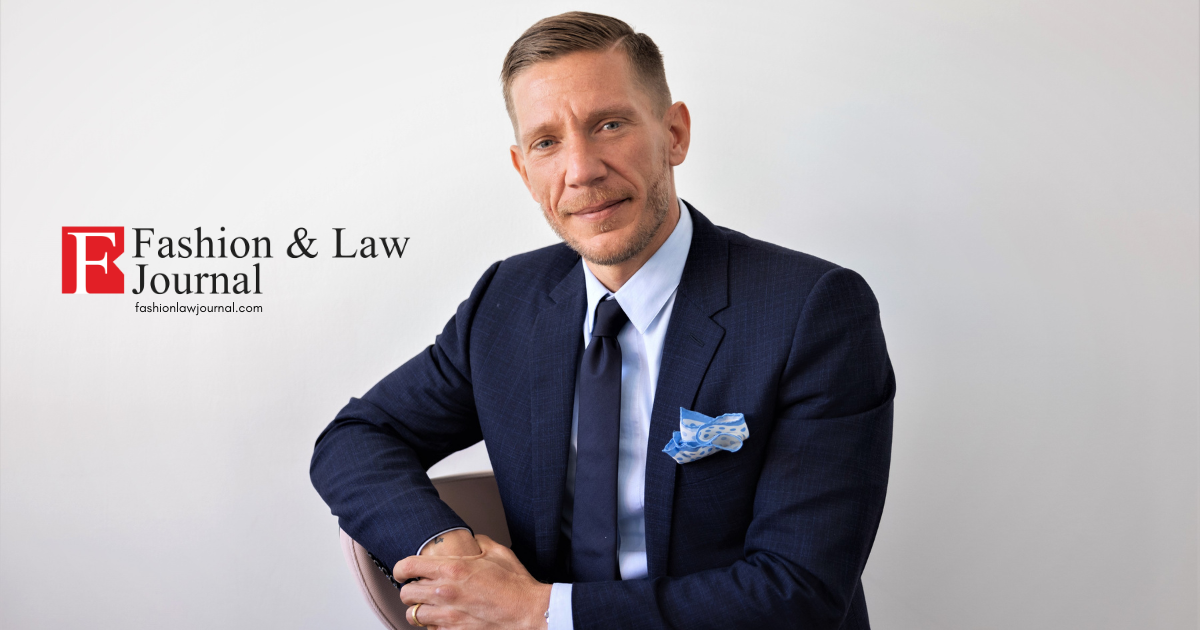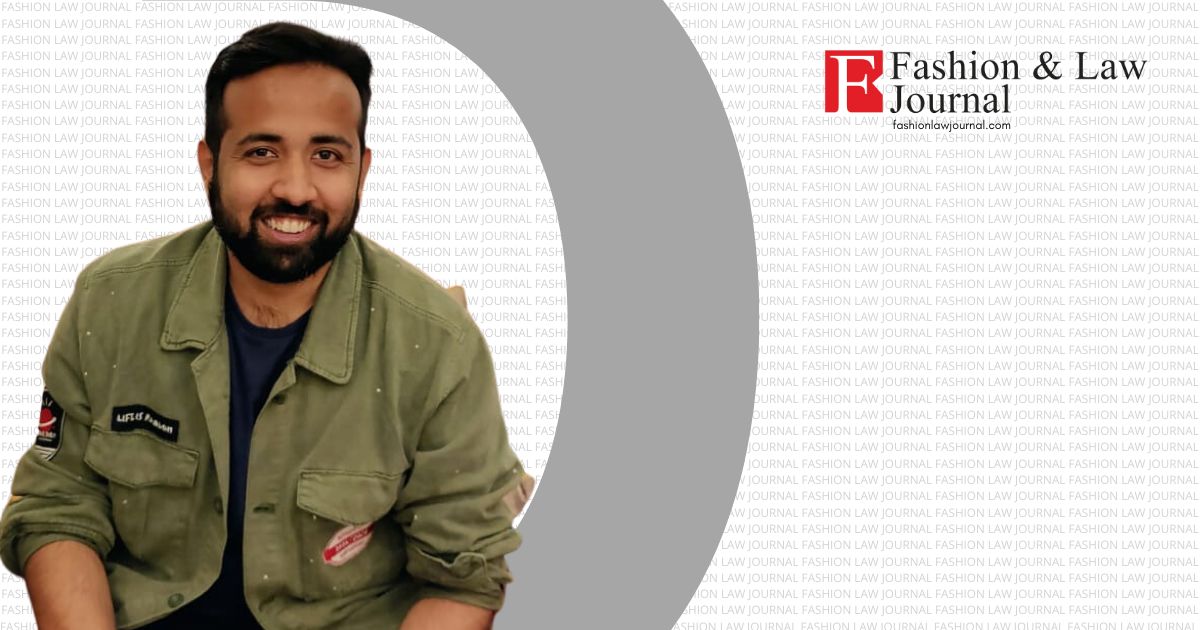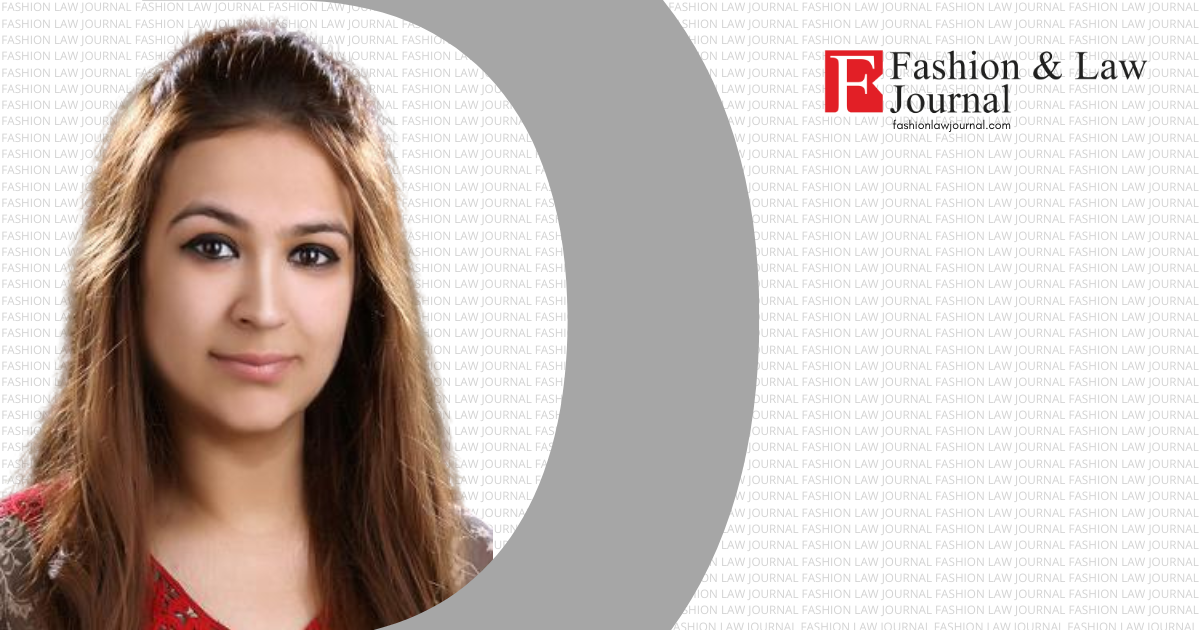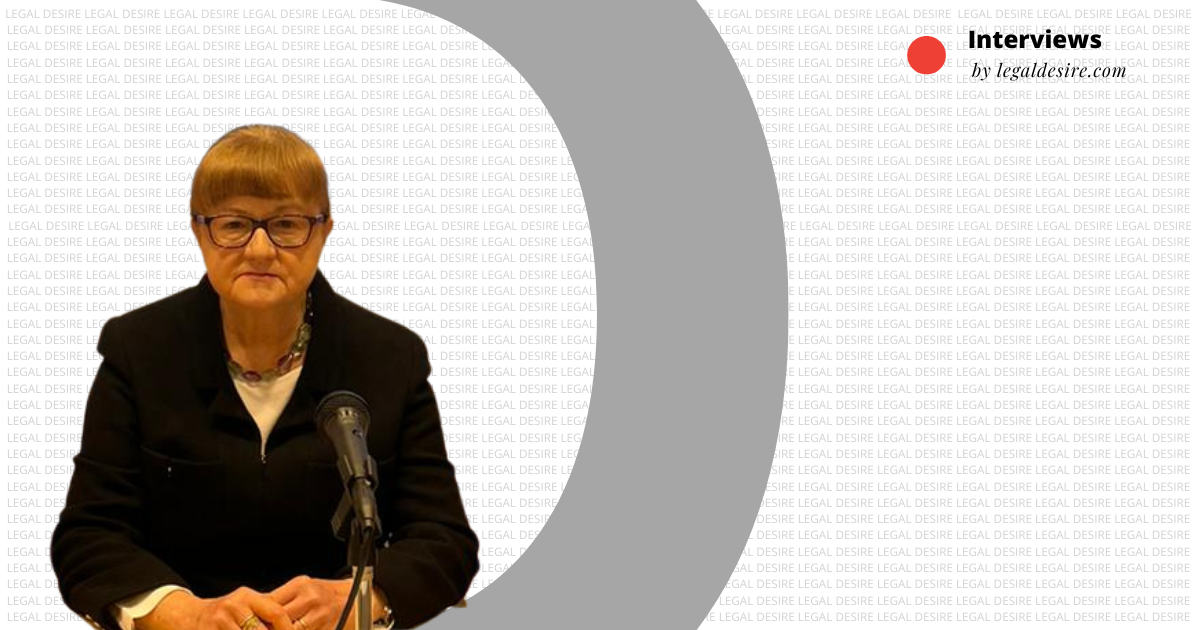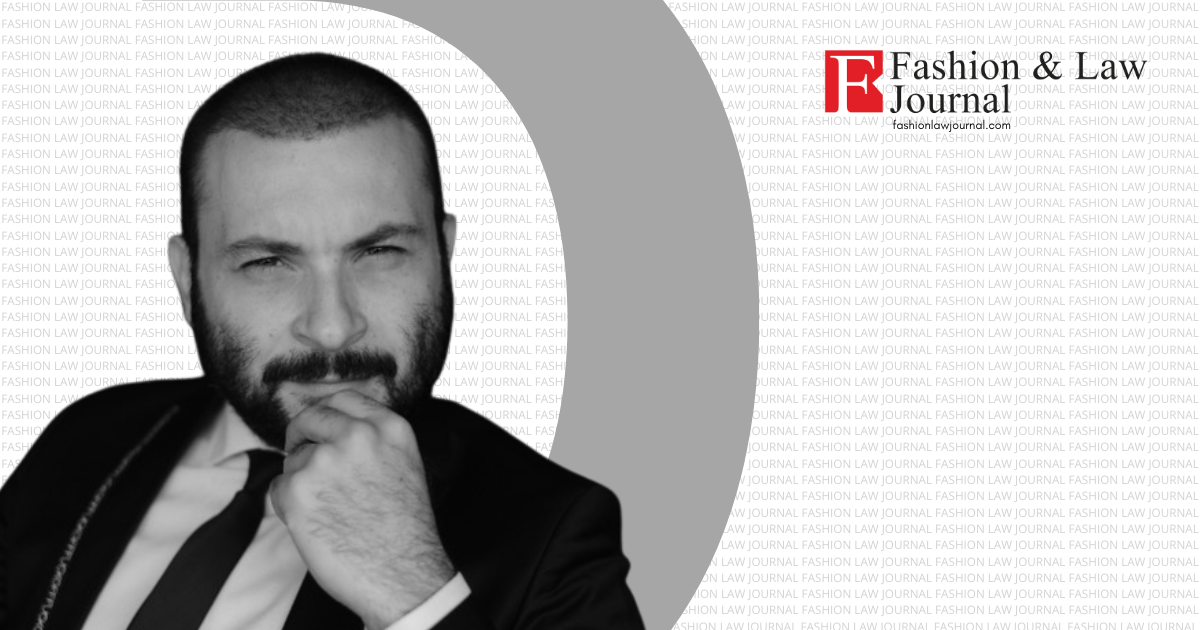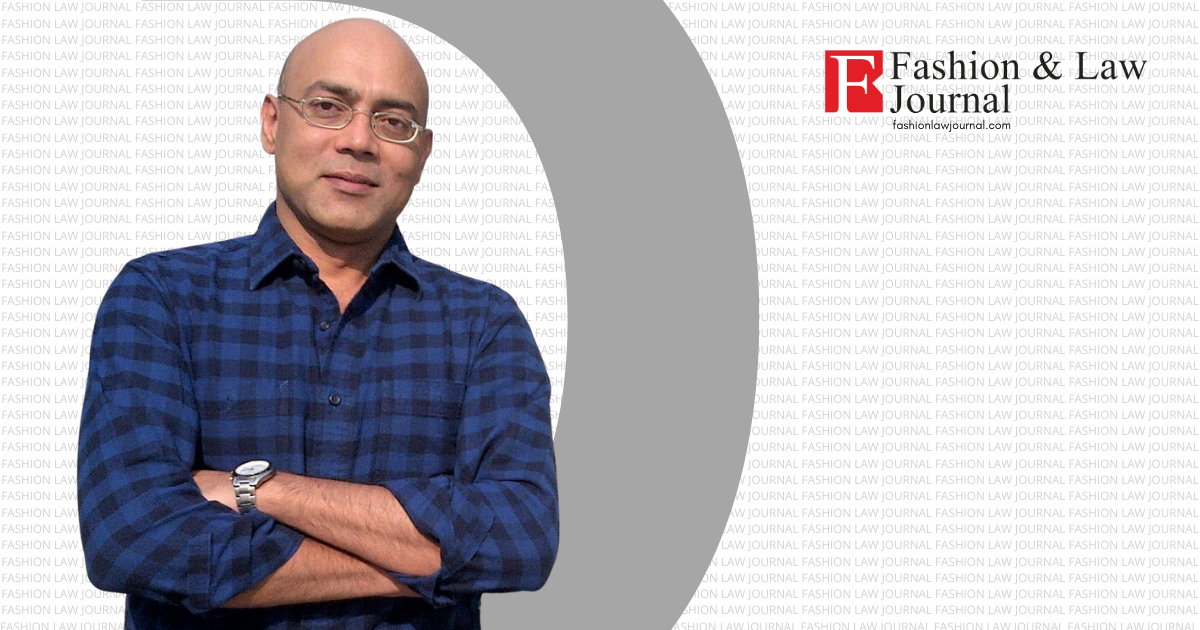Lorenzo Maria Di Vecchio is an Italian lawyer and, actually, he is the Legal, Ethics, and Compliance Director EMEA of Christian Dior Couture, in Paris. In a conversation with Camilla Gentile, Editorial Board Member at Fashion Law Journal, Mr. Di Vecchio talks about the dynamics of the fashion industry and his journey in the Fashion Law field.
1- Can you tell us what’s your role at Dior and what does it concern?
I’m Legal, Ethics and Compliance Director EMEA (Europe, Middle East, and Africa) – a region of almost 30 countries -. I manage a legal team of 6 people. Principally, we follow the legal aspects of the whole supply chain, from the production – part of it is based in Italy – to the commercialization of the final product, passing through corporate governance, service agreements, real estate and events (when not managed centrally); in general, all the legal matters around the life of a boutique and a local subsidiary within the Region Europe and Middle East.
2- What’s your educational and professional background? How much is important, as a legal, to achieve language skills?
My journey was very complex, with many attempts. I graduated in law, at the University of Rome, and I started the notary path. I abandoned it for many reasons and then I decided to become a lawyer. After my career in a law firm, I started to work for Heineken and I stayed there for 5 years: with this experience I definitely switched to the in-house career.
Later, I moved to Fendi and, now, I have been working at Dior for almost 3 years. When I started my career in fashion law this field didn’t have recognition. The figure of the fashion lawyer already existed but it didn’t have a name and it wasn’t recognized, while now it is for sure. I didn’t attend specific courses on fashion law, simply because they didn’t exist. I learned everything through my experience and my legal knowledge. So much so that, I took part in the creation of the first Master in fashion law at LUISS University, in Italy, with Ms. Angela Del Vecchio and we worked together to create, effectively, THE fashion lawyer as it is nowadays.
I studied English and German, in young age, and I improved English with experience. I didn’t really know French and never studied it, so I learned it once I came in France with Dior. Professionally, the most important skill is the English one because, in a company, you find yourself working with people from very different countries. Anyway, French is a plus, for sure, and it becomes mandatory when you decide to live in Paris and work with French people. In the fashion law field, maybe, French could be more important than English, but I don’t think it is mandatorial.
3- As a legal, how do you relate with other departments (e.g. production, retail, etc)?
Collaboration is fundamental, both for lawyers and legals, and it is very important in order to understand the business. This depends, mainly, on the lawyer’s curiosity. I think that curiosity is one of the most important things in this job. If you don’t know the business, you could give not useful or even wrong advice. Additionally, because the fashion field is very fast and challenging, if you don’t know your client’s needs the risk is to “stop” – create troubles – the business.
In order to add something more to your job, you have to speak with people, go to places, learn as much as possible about the business: know the industry deeply. Therefore, collaboration and curiosity are the most important qualities in order to work harmoniously with other departments.
4- What’s the most important area in which a fashion company looks for employees? Is the legal one of them?
In most of the industries, not only fashion type, support roles (legal, finance, etc.) are more suffering as a research-of-staff point of view. If the core business is production or selling, those will be the biggest ones in terms of workforce. Despite that, legal support is very important and the industry knows that it is fundamental.
Honestly, I saw an increase of the legal area in the last years, not only in fashion companies.
5- What’s the relationship between in-house and external lawyers?
It depends. When we need particular or specific technicalities or knowledge it is fundamental to work with external lawyers (e.g. due diligence, acquisitions, etc).
On the other side, we work with external lawyers in foreign countries: in this case the lawyer is our referent and representative for that area. This happens because we can’t follow all the specific procedures in every country and we can’t be always there physically.
We work mostly in-house because fashion is a really fast industry and it is difficult to receive a real time feedback from externals. We are very business oriented and we have to give quick response to business and to different departments. We are their reference, their advisor and our role is to manage risks and crises.
Despite that, sometimes we need an external support for the above reasons.
6- How much is important, for a legal position, the knowledge of the fashion world?
According to me it is essential, as a legal in-house or as an external consultant. That’s because this is a specific and particular sector, so the lawyer needs to know the maison, the group history, the core business. A standard approach doesn’t work for us.
It is really important to have passion and a fashion culture. This is a world of enthusiasts and it is important to be on the same wavelength of the client. We want somebody that knows the industry, that is passionate and that has a brand knowledge, also from an image and reputational point of view. That’s the only way to be efficient and to be an added value.
7- What’s the ideal path for who’s interested in fashion law, in particular at Dior?
There are three main pillars for a fashion legal, as an in-house but also as an external: real estate (core business of many fashion industries), IP rights (but in a very smart way: not only anticounterfeiting, but also collaborations, marketing, etc), industrial law (production, suppliers, contracts, etc).
Also, compliance (anticorruption, anti moneylaundering, etc) and sustainability are really actual and useful – even if I think that the last one could constitute an independent department (because it doesn’t involve only legal knowledge but also a very technical and practical support) -. Nowadays, it is very important also the knowledge of the digital law world (NFTs, blockchain, metaverse, etc). On the contrary, I don’t think it would be so helpful a background on administrative law, criminal law, tax law (maybe it could be useful in the finance area), M&A or litigation.
8- What is your advice for those who want to look for a job like yours?
For sure it is important to have a solid base on the above topics. It is very important to have skills in as more languages as possible (at least 3 languages – where English and French are the best, in my opinion). Now it is more difficult and the level is always higher: there is a high competition, especially in fashion law and especially for in-house positions. I think that being a young lawyer or a young legal is an added value because of the different worldview, the digital skills, the freshness, the knowledge of new technologies.
Fashion is really fast, as I said, so freshness, young age and determination are your strength. This market is not inaccessible, but it is important to give an added value and be specialized in new fields.
9- How have COVID and war impacted on your job and in the fashion industry?
Covid and war are two particular circumstances that have never been experienced before, so nobody knew how to manage them. Despite this, those helped many industries to understand the value of a good in-house lawyer. That’s because when there was the necessity to take important and fast decisions, this was totally on us. For example: open or close the production, being able to organize a catwalk (or online catwalk), security matters… legal decisions had (and still have) immediate reactions on business.
So we are almost entrepreneurs inside the industry. Covid gave us a strong impact on the business and on many decisions. We achieved a great visibility in the company.
We used to work on the background and now we are more entrepreneurial and we take many risks, giving feedbacks based only on our legal knowledge and this was (and is right now) very challenging.
10- What’s the strategy, in particular for fashion luxury industry, to achieve and manage sustainability?
We are not omniscient, and this is a very technical topic. So I think that the role of a legal should be more centred on avoid the risk of greenwashing or paying attention on marketing strategies. The in-house lawyer has to guide the process through communication and decisions, working together with production and technical departments.


